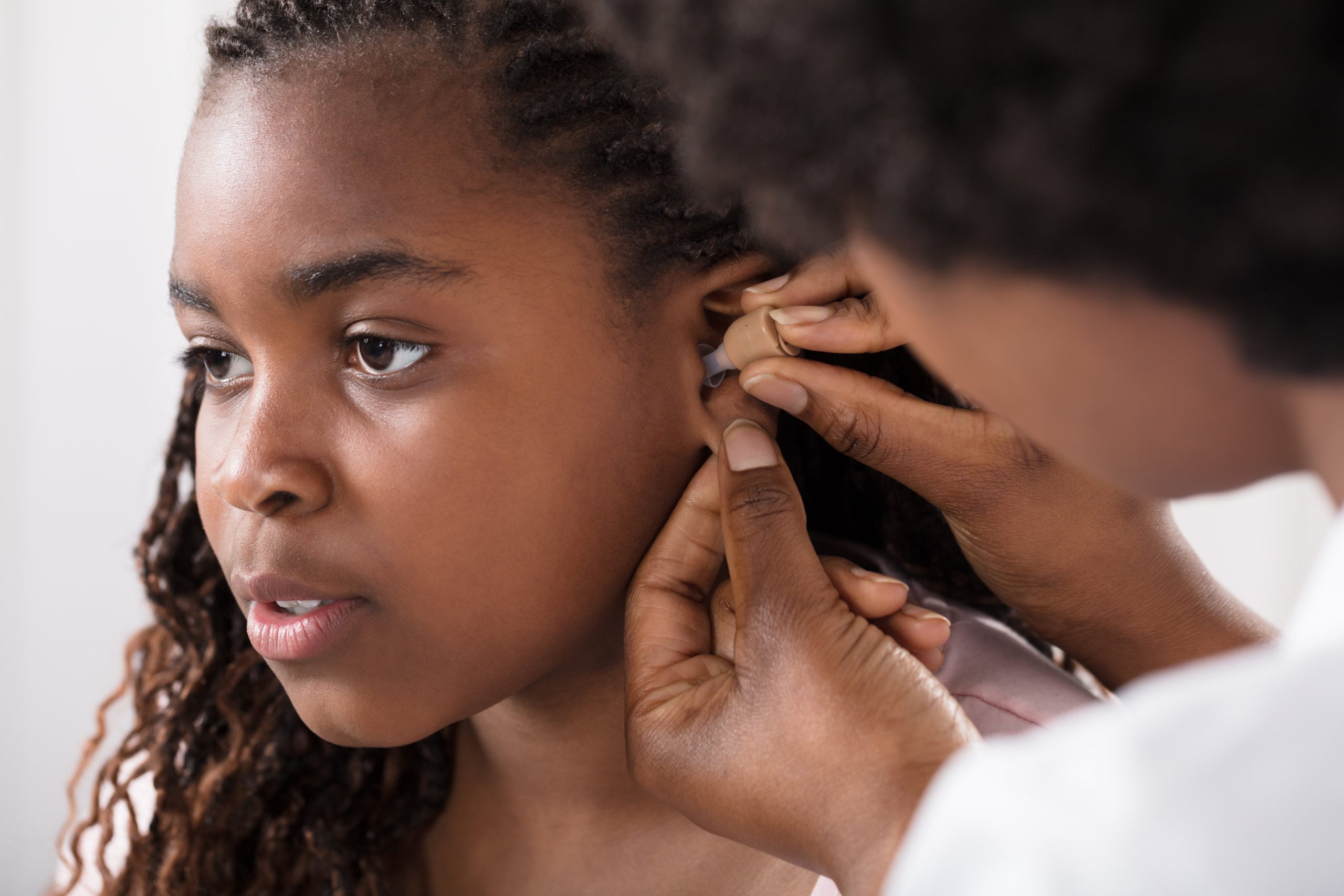
Why earlier is better to catch hearing loss in children
Parents of school-age children may wonder, when should my child’s hearing be tested? It may be sooner than you think.
All states have laws or voluntary compliance programs requiring hearing tests in newborns. These are often done before babies leave the hospital. Every year, about two or three of every hundred babies tested are born with hearing problems in the U.S.
For years, routine hearing tests took place only when children entered school, but time has shown that hearing loss can cause serious problems in children much earlier. A major reason to have hearing tested sooner than when school starts is because hearing issues can affect language and speech development. During the first six months of a baby’s life, he or she begins to recognize the spoken sounds that are critical for developing language. Problems with hearing can slow down that progress for both speaking and reading.
How do you know if your child is at risk for hearing issues?
Consider having your child tested for hearing loss, especially if he or she:
• Was born early (premature birth)
• Spent more than five days in neonatal intensive care (NICU)
• Has a history of severe yellowing of eyes and skin (jaundice) that resulted in a blood transfusion
• Mother or newborn infections
• Meningitis or history of brain injury that required a hospital stay
• Family history of childhood hearing loss
• Family history of certain hereditary or congenital syndromes including neurofibromatosis, Down syndrome, osteopetrosis, and Usher syndrome
Even if your baby has none of these risk factors, try to be alert to symptoms of hearing problems. You may notice the following signs of hearing loss in your baby.
• Baby does not notice loud noises
• After six months, does not turn toward sounds
• By 12 months, does not say single words
• Does not turn head when called by name
• In young children, delayed speech development or unclear speech
Repeated ear infections, which are common in young children, can also delay language development. A newborn can pass a hearing test and still have hearing issues later in childhood. Even if your baby has normal hearing exams, continue to stay alert to recognize these symptoms. If you notice them, contact your child’s pediatrician.

Hearing tests for babies and children
Here are some painless, quick, and sensitive tests babies typically undergo during the newborn screening:
• Auditory Brainstem Response test (ABR) — Sound is introduced to the baby’s ears through tiny earphones while the baby is sleeping. Using sensors attached to the baby’s head, the test records electrical activity made by the auditory nerve and brainstem when it’s stimulated by this sound.
• Otoacoustic Emissions test (OAE) — The normal ear makes faint acoustic signals. These are sometimes called inner-ear echoes. People can’t hear their own sounds from their inner ear, but tiny, sensitive microphones placed in the ear canal during the screening can measure the sounds. Babies who can’t hear don’t make any emissions.
Your child’s healthcare provider may check your child’s hearing with a simple device called a tuning fork, or your child may have tests from a audiologist. Tests for children can include ABR, OAE, and
• Pure tone audiometry — This test checks hearing at different decibels or sound levels.
• Tympanometry — This test is often used to check hearing in children with ear infections.
Other hearing evaluation tests may include:
• Speech audiometry — This test checks the spoken word.
• Behavioral testing — This is done for children who can’t be tested with other methods.
Because hearing problems can cause other issues down the line, including speech and reading delays, it’s important to have hearing checked at the first sign of a problem. Children’s Hospital Specialty Care – Baton Rouge, audiologists provide diagnostic hearing evaluations for pediatric patients from birth to age 21. They also treat hearing loss and evaluate amplification needs. Click here to learn more about the expert pediatric care we provide for babies, kids, and teens in Baton Rouge!

